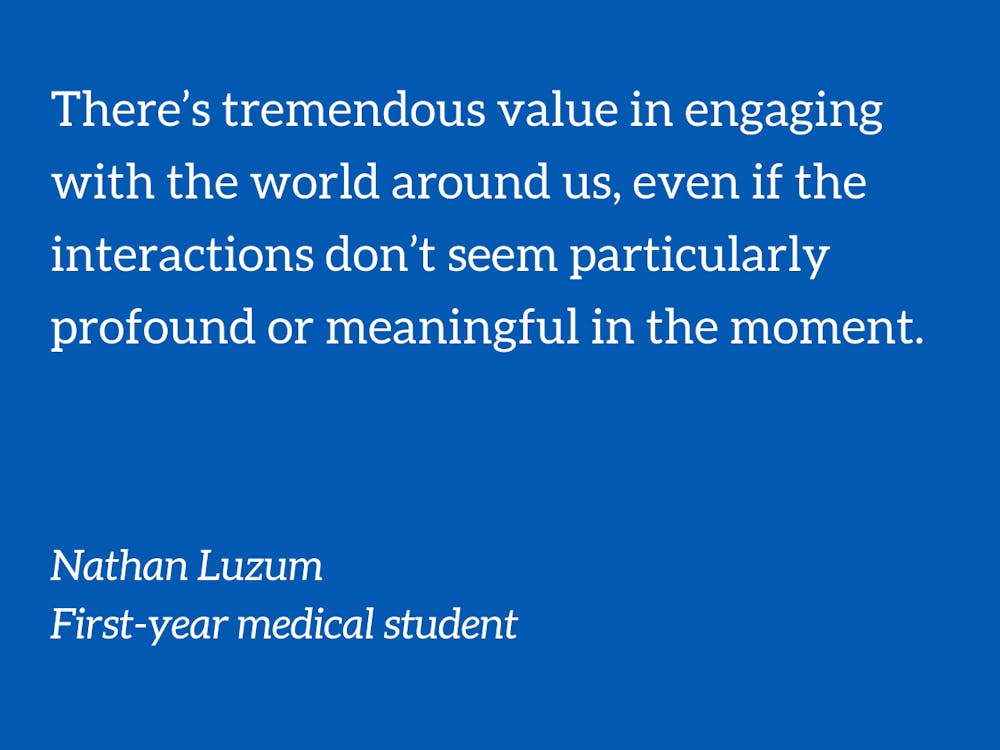When I lived in Massachusetts last year, I went to the gas station every Sunday morning.
Now, getting gas is not something I typically look forward to. Every surface involved in the process seems filthy, the smells in the air are a combination of substances I don’t even want to think about, and the pressure to move quickly while people in the car behind you are waiting and watching your every action is overwhelming. But a few weeks after settling into my new apartment, I soon found a run-down, full-service gas station offering gas for 20 cents cheaper than the nearby Shell. It looked like the kind of place that might homebrew its own gas, but I decided to try it anyway. Nothing in my car seemed permanently damaged after a couple days, so I decided to keep going back.
There was something about not having to pump my own gas that made me wish I’d been born in Oregon or New Jersey. But it wasn’t just my selfish desire to avoid the elements as the New England winter set in—the same attendant would pump my gas, and we began to exchange small talk each week. I think he began to recognize me as a regular. As bad weather became the norm, he’d give me a free bottle of water or squeegee my car windows as we chatted, and I began looking forward to our brief conversations each week.
What I soon realized was how much the pandemic and a cross-country move had stripped away these opportunities for superficial chit-chat—micro-interactions if you will—from my life. As COVID set in and continued its slow burn in fall 2020, I was fortunate enough to maintain contact with good friends from college as we all reflected on our bizarre entry into the post-graduation world. But my trips to the gas station opened my eyes to how much I missed the perfunctory daily interactions from my time as an undergrad on Duke’s campus. Not conversations with friends over lunch or professors after class, though I certainly missed those too—I’m talking about catching up with an acquaintance on the bus, chatting with the housekeeping staff as I left my dorm each morning, exchanging small life updates with the workers at Sprout practically every day.
Honestly, I never thought much of these conversations pre-COVID. They always seemed like quick diversions that punctuated a packed schedule of activities filling a busy day. I didn’t suspect I’d miss interacting with folks I hardly knew, but during the past year, I began to realize how much these people added meaning and value to my life.
That’s not to say that close friends and family members aren’t important—of course we need people to confide in and share deep conversation with. But there’s tremendous value in engaging with the world around us, even if the interactions don’t seem particularly profound or meaningful in the moment. They give us a sense of belonging in a greater community while also imparting that feeling on others. They allow us to cultivate our sense of empathy as we broaden our circle and gain more insight into others’ lives.
Research has suggested that people in coffee shops who were told to socially engage with the barista were in a better mood afterward compared to those who were instructed to be keen on efficiency and pass through as quickly as possible. And in another study that’s honestly a bit painful to read, one group of participants was tasked with trying to have conversations with strangers on public transportation or waiting rooms, while the other two groups were told not to acknowledge anyone else or just to be themselves. Interestingly, those who interacted with strangers reported higher levels of happiness afterward than people in the other two groups.
Although it’s probably smart to read the room before talking to your airplane seat neighbor for three hours straight, the gist is clear—engaging with strangers around us can boost our moods and make us all feel more connected. And with enough repetition, those strangers can become acquaintances, and the odds get better that we’ll all be able to learn a little bit from one another.
As a medical student, I’ve been thinking a lot about this in terms of patient care. Although it does depend somewhat on specialty, the crux of a physician’s job is talking to and connecting with strangers—not just to gather the chief complaint and ask “how long’s the headache been going on?” but to build empathy and understand the meaning of illness in a patient’s life. It’s to make the patient feel connected to something greater, to convince them that there are others on their side who are advocating for them. In some way, idle chit-chat with a stranger while waiting in line can shape the same feeling.
I’m no expert in talking to strangers. In fact, it still scares me a good amount of the time. But the more we’re able to set aside our elementary school counselors’ mantra of “stranger danger” and intelligently engage with people in the world around us, the more belonging we’ll be able to feel and, in turn, impart.
Nathan Luzum is a first-year medical student. His column runs on alternate Thursdays.
Get The Chronicle straight to your inbox
Signup for our weekly newsletter. Cancel at any time.

